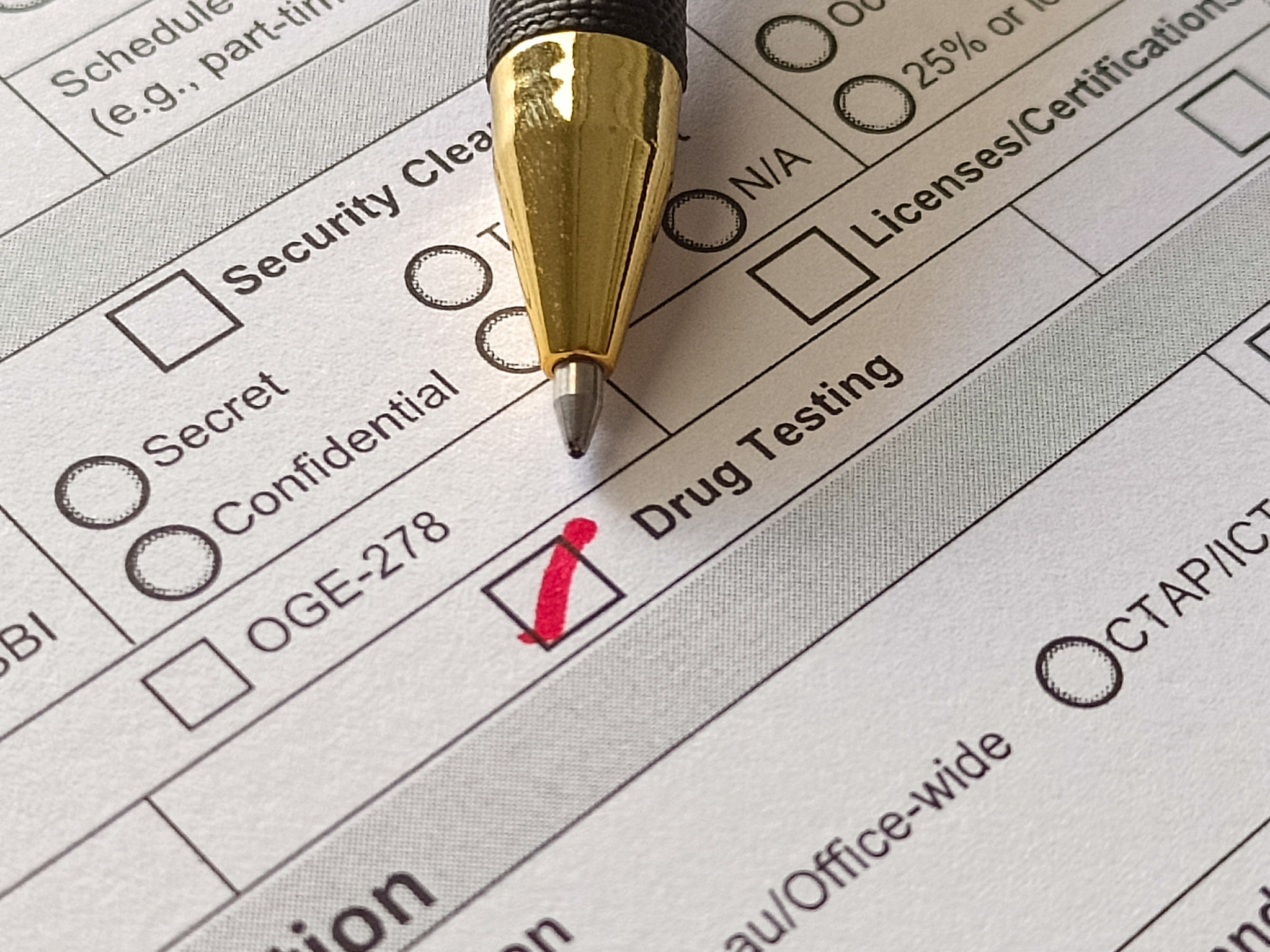Implementing a Random Drug Test Policy for a Drug-Free Workplace
Understanding the Importance of a Drug-Free Workplace
Creating a drug-free workplace is crucial for maintaining a safe, productive, and harmonious environment. Implementing a random drug test policy can be a key component in achieving this goal. By preventing substance abuse, organizations can ensure higher productivity, reduce accidents, and foster a healthier work culture. However, the implementation of such policies must be handled with care to balance employee rights and organizational needs.
Random drug testing serves as a deterrent against drug use and helps in identifying employees who may need support. It also reassures clients and stakeholders that the company prioritizes safety and reliability. A well-structured policy can contribute to the overall reputation of the organization.

Creating a Comprehensive Drug Test Policy
Before implementing random drug testing, it's essential to craft a comprehensive policy that aligns with legal requirements and organizational values. The policy should clearly outline the purpose, scope, and procedures of the drug testing process. It should specify which employees are subject to testing and how often tests will be conducted.
Additionally, the policy must address the types of substances being tested for, the testing methods used, and the consequences of a positive test result. Transparency is vital to ensure that all employees understand their rights and responsibilities regarding the policy. Providing access to resources and support for employees who test positive can help them seek rehabilitation and return to work successfully.
Legal Considerations and Employee Rights
When implementing a random drug test policy, it's imperative to consider the legal framework governing workplace drug testing. Laws vary by region, so organizations must ensure compliance with federal, state, and local regulations. Consulting with legal experts can help in crafting a policy that respects employee privacy while fulfilling legal obligations.

Employees have the right to be informed about the testing procedures and the potential implications of their results. Providing adequate training for staff members responsible for administering tests can ensure that the process is conducted fairly and professionally. Maintaining confidentiality of test results is also critical to protect employee privacy.
Communicating the Policy to Employees
Effective communication is key to ensuring that employees understand and accept the drug test policy. Hosting informational sessions or workshops can offer employees an opportunity to ask questions and provide feedback. This open dialogue can help in addressing concerns and fostering a sense of trust within the organization.
Written materials such as employee handbooks, emails, or intranet postings can serve as valuable resources for employees to refer back to. It's important to emphasize that the policy is not punitive but rather aims to promote a safe and healthy work environment for everyone.

Implementing the Testing Process
Once the policy is established and communicated, implementing the testing process requires careful planning. Selecting a reliable, accredited testing facility is crucial for ensuring accurate results. Scheduling tests at random intervals minimizes predictability and strengthens the deterrence factor.
The process should be streamlined to minimize disruptions to daily operations. Prompt notification of test results and clear procedures for handling both positive and negative results will help in maintaining transparency. Supporting employees who test positive through counseling or rehabilitation programs can aid in their recovery and reintegration into the workplace.
Evaluating and Adjusting the Policy
The implementation of a random drug test policy should be an ongoing process, with regular evaluations to determine its effectiveness. Gathering feedback from employees and monitoring workplace incidents can provide insights into areas that may need improvement.

Organizations should be open to adjusting their policies based on changing laws, industry standards, or organizational needs. By maintaining flexibility, businesses can ensure that their drug-free workplace initiatives remain relevant and effective in promoting safety and productivity.
